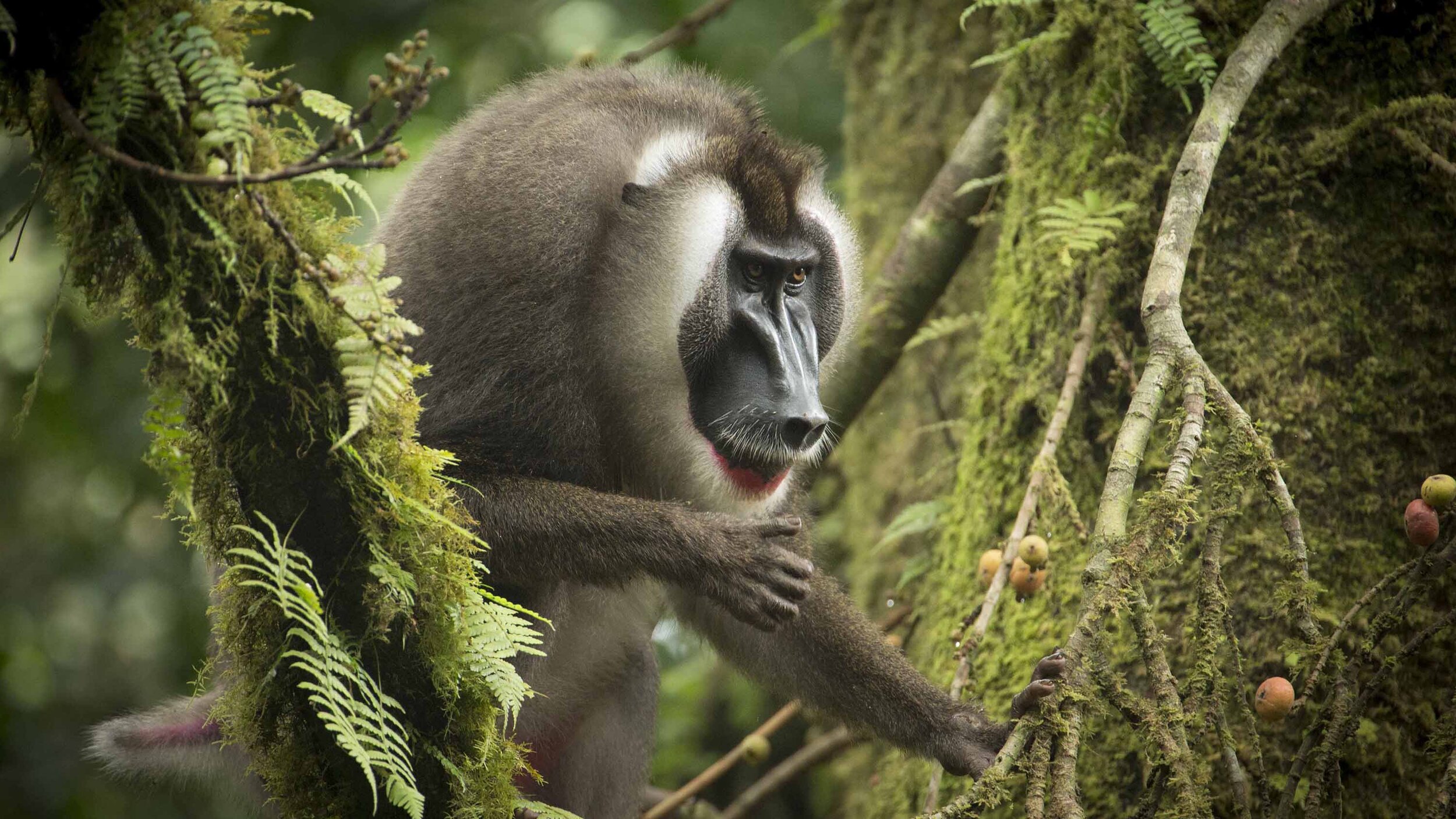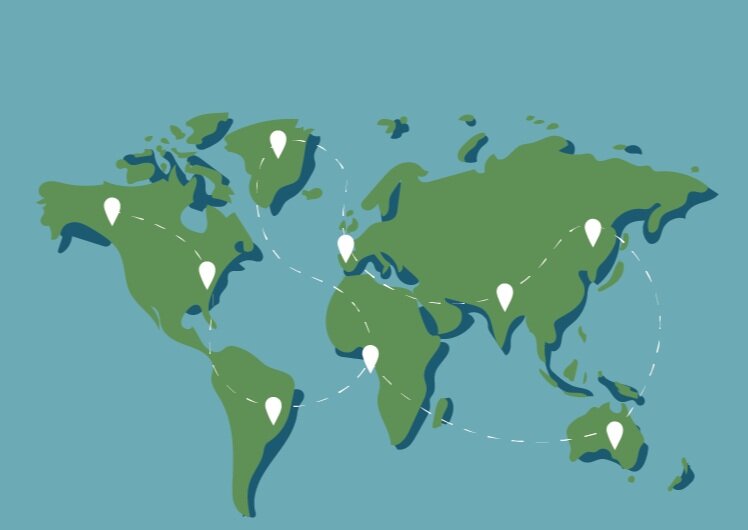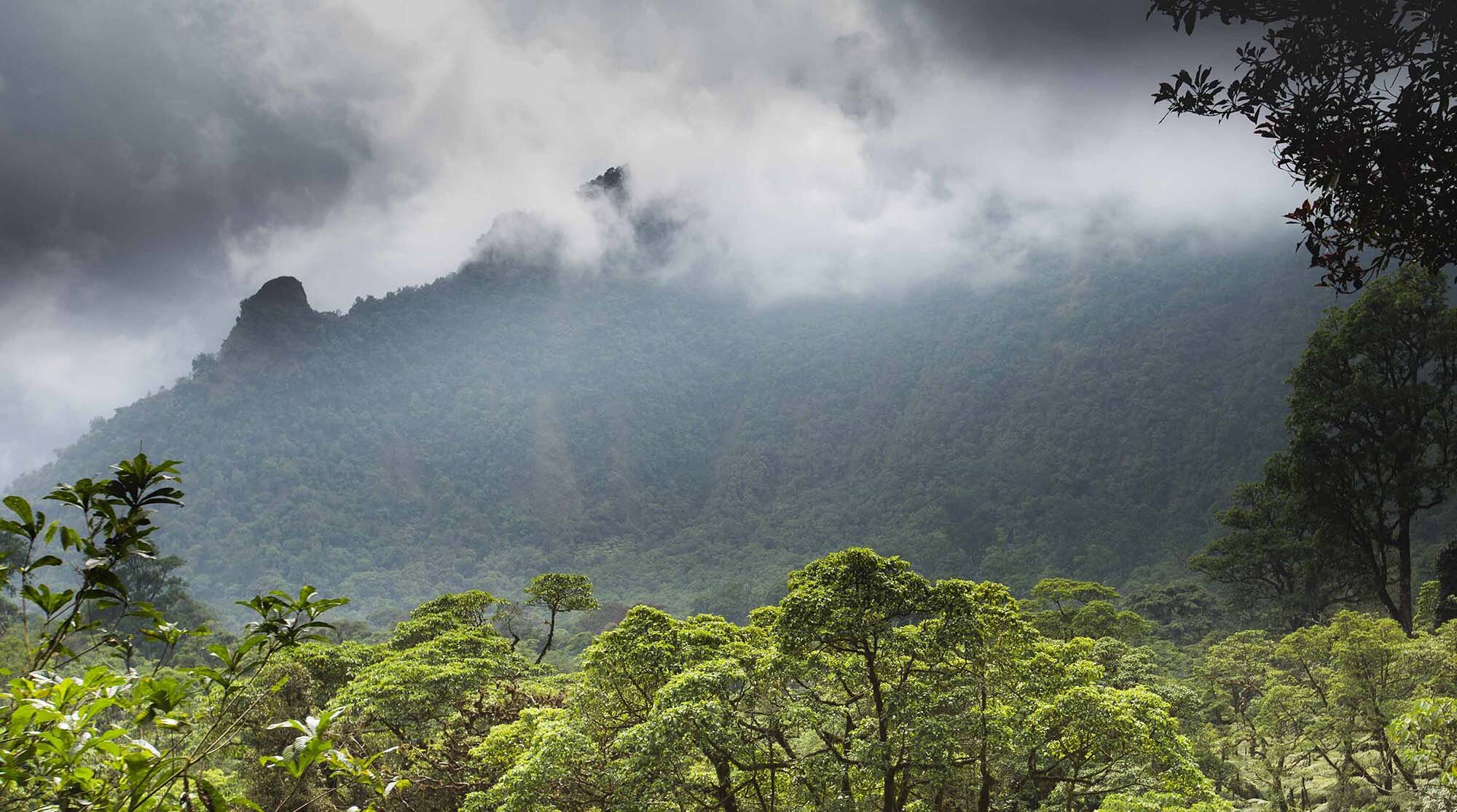
THE DRILL PROJECT
Conserving one of Africa’s rarest primates
Help us conserve this vibrant species
The drill monkey (Mandrillus leucophaeus) is one of the world’s least known species of primates and is threatened by habitat loss and the illegal bushmeat trade.
Since 2011 the drill project has worked on Bioko Island, Equatorial Guinea, filming, collecting data and providing protection for the drill. We would like thank everyone past and present who have supported our project and the other conservation projects working towards the same goal. It is our hope that through this site we can provide a resource for people who want to learn about the drill monkey and be inspired to help conserve the world's endangered species and biodiversity.
Our Goals
-

Preventing zoonotic outbreaks
The bushmeat trade not only pushes species towards local extinction in places like Bioko, but also acts as reservoirs for deadly diseases that could create the world’s next devastating pandemic.
-

Protecting the drill
As the largest mammal on Bioko, this charismatic and endangered primate is the perfect flagship species acting as an umbrella for many more. By protecting the drill we are protecting the people, plants and animals that share its habitat.
-

Creating Opportunity
In order to create the world’s next stewards for conservation we need to create meaningful and sustainable employment opportunities. TDP aims to help grow the professions of environmental leaders and others so their communities may flourish alongside wildlife.
-

Promoting ecotourism
Even though the country of Equatorial Guinea is home to incredible natural beauty it remains the 6th least visited country in the world with an economy highly dependent on the petroleum industry. In order to compete with modern economies and provide access to employment and a healthy standard of living, we must do all we can to promote ecotourism utilizing sustainable opportunities without harming future resources.
-

Providing research opportunities
The Drill Project is the first ever long term study on drills in the wild. With over 10 years in the field collecting data and providing passive protection against hunting we have been dedicated to learning more about the drills and the forests of Equatorial Guinea with many discoveries yet to be made.
-

Collaboration
We believe that the only way to make conservation success stories is to collaborate with others. We are dedicated to working with other organizations, agencies, professionals, and communities to make sure we all achieve our goal of protecting the planet for future generations.
Take Action
Ready to take the next step and help the drills? You can become a contributor to our cause by donating directly to our conservation efforts.
OUR MISSION
The Drill Project is a conservation initiative aimed at providing educational resources and conducting scientific research to aid in conservation efforts regarding the endangered Drill monkey. Based on Bioko Island off the coast of West/Central Africa, the island is home to Equatorial Guinea's capital of Malabo as well as rich levels of biodiversity and 11 species of primates. Drills are one of the largest and least known species of monkey and are threatened with the illegal bushmeat trade which is pushing them towards extinction both on Bioko and on the mainland of Nigeria and Cameroon.
Through research and conservation outreach focused on the use of film, we hope to increase the awareness of these endangered animals and fragile ecosystems. The Drill Project is dedicated to working with other organizations, government agencies and communities to provide the protection necessary to save the drills from extinction.
Celebrating 10 Years of Drill Conservation
Here’s a short video celebrating drills on Southern Bioko for this year’s International Primate Day. Drills are still in dire need of help if they are going to survive into the future. With that said it’s always nice to take a deep breath and enjoy the beauty and diversity of life on Earth.


